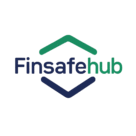In an era where digital finance is reshaping how we earn, save, invest, and spend, financial security has become a crucial life skill. Yet, millions globally are left vulnerable due to a lack of foundational financial knowledge. Education plays a pivotal role in building this resilience, helping individuals navigate complex financial systems and avoid pitfalls such as scams, debt traps, and digital fraud.

“Financial literacy is not a luxury—it’s a necessity. An educated consumer is our best customer.” — Richard Cordray, former Director of the U.S. Consumer Financial Protection Bureau
Financial Literacy as a Lifeline
Understanding how money works—from interest rates to budgeting to digital payments—empowers people to make informed decisions. Yet, basic financial concepts aren’t universally taught in schools. Many adults grow up without knowing how to manage a bank account, understand credit, or detect fraud.
By integrating financial education early, we create a foundation that supports long-term stability. Students exposed to personal finance concepts are more likely to save, less likely to borrow irresponsibly, and better prepared to use fintech tools responsibly.
“When people know better, they do better. Financial literacy is the foundation of economic justice.” — Suze Orman, financial advisor and author
Digital Finance Demands Digital Awareness
Today, managing your finances means more than balancing a checkbook. It involves navigating online platforms, investing through apps, and securing your identity in a world of cybercrime.
Educational initiatives must evolve to include:
- How to recognize phishing and financial scams
- The importance of 2FA (Two-Factor Authentication)
- Best practices for using digital wallets and virtual cards
The better informed people are, the less likely they are to fall victim to modern fraud tactics.
“Technology without education is a recipe for vulnerability. We must educate users as fast as we innovate.” — Gita Gopinath, First Deputy Managing Director at the IMF
Empowerment Through Accessible Education
Accessible, inclusive education can narrow the financial literacy gap. Government programs, nonprofits, and even fintech companies are stepping in to offer:
- Free courses and workshops
- Mobile learning apps
- Real-time fraud alerts and safety resources
Empowering underserved communities is especially critical. When financial education is paired with access to secure banking tools, it lifts entire communities out of poverty and creates generational impact.
“Financial education is a tool of empowerment, not just protection. It puts people in control of their money and their future.” — Ngozi Okonjo-Iweala, Director-General, World Trade Organization
A Lifelong Learning Process
Financial education isn’t a one-time event. As the financial landscape evolves with crypto, Buy Now Pay Later, and decentralized finance (DeFi), so must our understanding.

Regularly updating your knowledge ensures you’re equipped to:
- Assess risk accurately
- Protect your digital identity
- Use modern tools without falling prey to bad actors
Continuing education—through blogs, podcasts, or community events—should be part of everyone’s financial toolkit.
Final Thoughts
The link between education and financial security is undeniable. A well-informed population is better protected, more empowered, and capable of taking full advantage of the digital financial revolution.
Whether you’re a student, professional, or retiree, it’s never too late to learn. And in a world where fraud evolves daily, staying financially educated isn’t optional—it’s essential.
Looking to strengthen your financial literacy?
Explore more expert tips and actionable guides in the Discover Resources section at FinSafeHub.
